Jul 6, 2015 | Focolare Worldwide
Teaching methodology: an interactive approach, open to dialogue, sharing, and re-working with the instructors, experts, and students together, through seminars, workshops, and debates. Subject matter: proposals, analysed and studied in the preceding 6 months by an international preparatory committee formed by several of the participating students with the co-operation of the experts.
- Relationships in healthcare activities
- Ethics in daily clinical practice, starting with several documents from international medical institutions, and finishing with clinical experiences on aspects such as end of life care.
Participants: students and young people from 20 to 35 years of age in the various professions of the biomedical field (medical doctors, nurses, physiotherapists, occupational therapists, etc.) coming from various countries. Maximum number of participants: 50 Languages: Portuguese, English, Italian, Spanish Objectives: Offer to healthcare professionals the skills necessary to care for the person and not only the pathology, and to remedy the fragmentation of care, guaranteeing that professionals are united in taking responsibility for the patient. At the end of the programme, a certificate of participation will be issued. Location: Cidadela Arco-Iris, Rua Senhora da Graça, 60 2580-042 Abrigada Tel. +351 263 799 995 + 351 263 790 131 Fax: + 351 263 799 091 Hours: The programme will start September 3rd at 9:00 a.m. and will conclude September 6th at 1:00 p.m. Cost: The cost, including meals and lodging for all days of the Summer School (starting with dinner September 2nd and ending with lunch on September 6th), transportation from the Lisbon airport to the location and return trip, and the touristic excursion to Lisbon, is 180€. Enrollment: Complete and send the registration form (www.mdc-net.org) to the address: mdc@flars.net. Registration will be accepted after the receipt of payment by means of a bank transfer to: ASSOCIAZIONE MEDICINA DIALOGO COMUNIONE (M.D.C.) IBAN: IT68L0335901600100000113321 BIC: BCITITMX For more information, please contact mdc@flars.net. ——————————————————————— Associazione Medicina Dialogo Comunione Via IV Novembre 7, 00046 GROTTAFERRATA (RM) Fax 06-94549841 Email: mdc@flars.net Website: www.mdc-net.org

Jul 6, 2015 | Focolare Worldwide
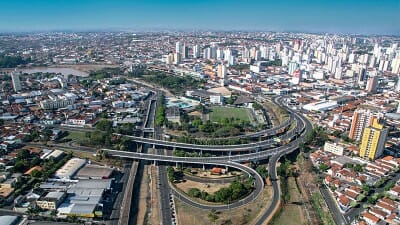 It was in the air. Too many times João had heard his parents argue, and the fact that he and his mother and brothers had to leave home because his father had a child with another woman didn’t surprise him very much. He was 16 then, he was involved in his parish, he had friends. Within him, though, he felt betrayed and dissatisfied, with a strong need for freedom, to be himself. It was an apprehension that led him to discontinue his studies. He took up his schooling again years later, only after he had found the real reason for living. “At 20 years of age,” recounts João, “I participated in a Focolare activity with the youth group from my parish. During those few days, I realized that the Gospel isn’t so much to be commented or reflected upon, as it is to be put into practice immediately. I was particularly struck by those passages which say how to treat our neighbors: the Good Samaritan, the Golden Rule. I had gone to the activity out of pure curiosity, and instead it was the event which changed my life.” In Sao José do Rio Preto (State of Sao Paulo), which is my hometown, there are many people who live on the street. One evening, as I was going back home on my bicycle, I crossed paths with a man who was walking barefoot. His feet were dirty and wounded. At the sight of him, I couldn’t pedal any further. “That man is my neighbor, I have to go back to him.” Before I reached him, I took off my shoes to give them to him. He looked at me, surprised. I saw that he was wearing a T-shirt with my favorite soccer team on it, and I said to him, to take away his embarrassment, “So you’re a Santista fan? So am I! What’s your name?” He took the shoes, and we became friends.
It was in the air. Too many times João had heard his parents argue, and the fact that he and his mother and brothers had to leave home because his father had a child with another woman didn’t surprise him very much. He was 16 then, he was involved in his parish, he had friends. Within him, though, he felt betrayed and dissatisfied, with a strong need for freedom, to be himself. It was an apprehension that led him to discontinue his studies. He took up his schooling again years later, only after he had found the real reason for living. “At 20 years of age,” recounts João, “I participated in a Focolare activity with the youth group from my parish. During those few days, I realized that the Gospel isn’t so much to be commented or reflected upon, as it is to be put into practice immediately. I was particularly struck by those passages which say how to treat our neighbors: the Good Samaritan, the Golden Rule. I had gone to the activity out of pure curiosity, and instead it was the event which changed my life.” In Sao José do Rio Preto (State of Sao Paulo), which is my hometown, there are many people who live on the street. One evening, as I was going back home on my bicycle, I crossed paths with a man who was walking barefoot. His feet were dirty and wounded. At the sight of him, I couldn’t pedal any further. “That man is my neighbor, I have to go back to him.” Before I reached him, I took off my shoes to give them to him. He looked at me, surprised. I saw that he was wearing a T-shirt with my favorite soccer team on it, and I said to him, to take away his embarrassment, “So you’re a Santista fan? So am I! What’s your name?” He took the shoes, and we became friends.  I was at the train station, returning from a meeting held in another city. At that hour–two o’clock in the morning–the means of public transportation no longer run, and so I started towards home on foot, crossing the center of the city. Looking around, I saw lots of people who took advantage of the fact that stores were closed to sleep in front of the shop windows. I wasn’t afraid, because this was my hometown. At one point, however, a big, tall man came up to me and asked for money. I must confess that I started to be a little afraid. Who was to say that he wasn’t violent? But I thought, “He, too, is my brother, the Gospel says so.” Calmly, I told him that I couldn’t give him anything because I had no money either. He began to tell me his story, then he had me put on his headphones. He was listening to a sermon by a Protestant pastor. I listened to the transmission for a bit, so that I could tell him that this person was saying nice things and that it’s good to listen to these positive messages every so often. He asked me, “Who are you?” Not knowing how to respond, I asked him why he wanted to know. He said, “Because nobody treats us this well.” This went on for 30 or 40 minutes. I thought about the distance I still needed to travel in order to arrive home, about the fact that I needed to wake up at 6 the next morning to go to work. But I felt that I had to stay a while longer to accommodate this neighbor who needed company and listening. In the end, after he had asked for my address in order to come to my house for a barbecue, we said goodbye, with the knowledge that we had each found a brother. One rainy day, as I was returning home on my motorcycle, I saw a man, soaking wet, who was trying without success to get up from a puddle. I recognized him: he was one of my next-door neighbors who was always drunk. In the nearby bar, there were several men who simply watched the scene without doing anything. Trying not to get angry, I stopped, left the motorcycle there and accompanied him home, explaining to his wife what had happened. Then I retraced my steps to go back for the motorcycle. As I walked, a phrase re-echoed deep in my heart: “You did it to Me.” I was no longer angry. It was enough for me to feel happy and to not blame those men, astonished, who continued to watch me.
I was at the train station, returning from a meeting held in another city. At that hour–two o’clock in the morning–the means of public transportation no longer run, and so I started towards home on foot, crossing the center of the city. Looking around, I saw lots of people who took advantage of the fact that stores were closed to sleep in front of the shop windows. I wasn’t afraid, because this was my hometown. At one point, however, a big, tall man came up to me and asked for money. I must confess that I started to be a little afraid. Who was to say that he wasn’t violent? But I thought, “He, too, is my brother, the Gospel says so.” Calmly, I told him that I couldn’t give him anything because I had no money either. He began to tell me his story, then he had me put on his headphones. He was listening to a sermon by a Protestant pastor. I listened to the transmission for a bit, so that I could tell him that this person was saying nice things and that it’s good to listen to these positive messages every so often. He asked me, “Who are you?” Not knowing how to respond, I asked him why he wanted to know. He said, “Because nobody treats us this well.” This went on for 30 or 40 minutes. I thought about the distance I still needed to travel in order to arrive home, about the fact that I needed to wake up at 6 the next morning to go to work. But I felt that I had to stay a while longer to accommodate this neighbor who needed company and listening. In the end, after he had asked for my address in order to come to my house for a barbecue, we said goodbye, with the knowledge that we had each found a brother. One rainy day, as I was returning home on my motorcycle, I saw a man, soaking wet, who was trying without success to get up from a puddle. I recognized him: he was one of my next-door neighbors who was always drunk. In the nearby bar, there were several men who simply watched the scene without doing anything. Trying not to get angry, I stopped, left the motorcycle there and accompanied him home, explaining to his wife what had happened. Then I retraced my steps to go back for the motorcycle. As I walked, a phrase re-echoed deep in my heart: “You did it to Me.” I was no longer angry. It was enough for me to feel happy and to not blame those men, astonished, who continued to watch me.
Jul 6, 2015 | Focolare Worldwide
” I want to be a witness of this joy of the Gospel and bring to you the tenderness and caress of God, our Father, especially to his children most in need, to the elderly, the sick, the imprisoned, the poor, to those who are victims of this throwaway culture.” Pope Francis spoke from the heart in the video message to his “dear brothers and sisters of Ecuador, Bolivia, and Paraguay,” on the eve of the voyage that from July 5th to 13th will bring him to three South American countries, praying “that the announcement of the Gospel can reach to the farthest outskirts and continue to make the values of the Kingdom of God a leaven of the earth in our days as well.” https://www.youtube.com/watch?v=A5QEBJ8-IJw “Right from the preparations we sensed that this visit would be a providential grace for the people of God in this land,” write Bernadita and Fabián, who are responsible for the Focolare Movement in Ecuador. Inés Loato is on the organizing committee. She remembers with gratitude the path undertaken in just two months of preparation: “it has been a new discovery meeting members of other Movements and church communities, a tremendous richness. We all feel we are truly brothers and sisters.” In this period they sought to “testify to this love as preparation for the grace that we will surely receive.” Many others were involved as volunteers, thousands throughout the country: “Joy, humility and love are the three consignments that the Church has given us for our volunteer work,” explains Adriana Guallasamin, a young volunteer and coordinator in the formation sector. A mission of “proclamation, door to door, in contact with many people who are far from the Church, but slowly responded to the invitation to help with the logistics.” “I am grateful to God,” she concludes, ” for this unique opportunity to serve the Church.” What to expect from the pope’s packed schedule, in the first stop in Ecuador (http://papafranciscoenecuador.com/) There are the two mid-ocean masses in Guayaquil and Quito, a meeting with the world of education, with representatives of civil society, a visit to the Sisters of Mother Teresa nursing home, a meeting with priests, religious brothers and sisters, seminarians, and the Bishops of the nation. In addition to the greeting for President Correa and the visit to the Cathedral of Quito and the Church of the Company. In Bolivia (http://www.franciscoenbolivia.org/) with the motto, “Renewal and Reconciliation,” awaits –among other appointments–the 2nd World Meeting of Popular Movements and a visit to the imprisoned in the Center of Reeducation in Palmasola. In Paraguay (https://franciscoenparaguay.org/) the visit to a pediatric hospital and the inhabitants of a barrio (neighborhood) in the capital city, Asunción. The voyage concludes with a meeting with young people on the riverfront, Costanera: “messenger of joy and peace,” or as they say in guarani, the official language of Paraguay along with Spanish, to highlight the cultural variety and preciousness : Oguerúva vy’a ha py’aguapy.
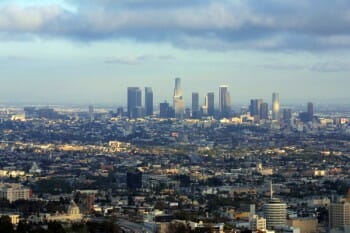
Jul 4, 2015 | Non categorizzato
 «The modern world with its secularism, has moved away from God because […] it had not received sufficient explanations on the fact that man was God, had been divinised, and was not only dependent on an estranged and remote being: it was in a mysterious manner another small God, due to its participation in the divine nature through Jesus’s life, and particularly through the Eucharist. When I reconsider some of Marx’s writings, in which he negates the value of religion precisely because it alienates man, making him a stranger to his own self, exactly because it makes him depend on something that is external to himself, I think that if he had only known that man finds his divinisation and thus his independence in the trinitarian sense, he would never have come to think the way he did.[…] The same goes also for Hegel, from which Marx drew inspiration; the same can be said of the immanentists, all those who negated God in order to uphold man, up to Sartre, Camus and so on. Sartre had said: «there cannot be a God, because if so, I would not exist,» precisely because he would crush me. This is not so since God who became man, made you God, making you share his divine nature.[…] Day by day we see how none of humanity’s problems can be resolved singularly, and neither by particular groups nor national groups. The problems now have to be resolved in a collegial manner, giving rise to that unity Jesus had brought. And we know that this unity can rarely be created without a spiritual life. In short, it is by creating a community of bodies that a community of persons is created, and this is only possible if these persons are nurtured by something which harmonises them tas one. This something may, in a remote sense, be science, or the research man has initiated. But what most of all creates unity is Man par excellence, that is, Jesus. He is the one who makes us men and makes us a community. […] The Eucharist, on one hand, is an immense mystery. On the other, it is a banquet which is a natural convergence of human fraternity. […]The Eucharist is the soul, and must become the soul of this sociality.» Excerpt of: Luce che si incarna, comment on the 12 points of the spirituality, Pasquale Foresi, New City 2014, pp.107-109
«The modern world with its secularism, has moved away from God because […] it had not received sufficient explanations on the fact that man was God, had been divinised, and was not only dependent on an estranged and remote being: it was in a mysterious manner another small God, due to its participation in the divine nature through Jesus’s life, and particularly through the Eucharist. When I reconsider some of Marx’s writings, in which he negates the value of religion precisely because it alienates man, making him a stranger to his own self, exactly because it makes him depend on something that is external to himself, I think that if he had only known that man finds his divinisation and thus his independence in the trinitarian sense, he would never have come to think the way he did.[…] The same goes also for Hegel, from which Marx drew inspiration; the same can be said of the immanentists, all those who negated God in order to uphold man, up to Sartre, Camus and so on. Sartre had said: «there cannot be a God, because if so, I would not exist,» precisely because he would crush me. This is not so since God who became man, made you God, making you share his divine nature.[…] Day by day we see how none of humanity’s problems can be resolved singularly, and neither by particular groups nor national groups. The problems now have to be resolved in a collegial manner, giving rise to that unity Jesus had brought. And we know that this unity can rarely be created without a spiritual life. In short, it is by creating a community of bodies that a community of persons is created, and this is only possible if these persons are nurtured by something which harmonises them tas one. This something may, in a remote sense, be science, or the research man has initiated. But what most of all creates unity is Man par excellence, that is, Jesus. He is the one who makes us men and makes us a community. […] The Eucharist, on one hand, is an immense mystery. On the other, it is a banquet which is a natural convergence of human fraternity. […]The Eucharist is the soul, and must become the soul of this sociality.» Excerpt of: Luce che si incarna, comment on the 12 points of the spirituality, Pasquale Foresi, New City 2014, pp.107-109
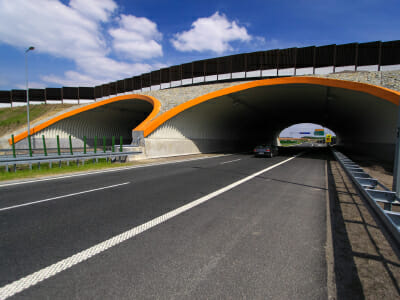
Jul 2, 2015 | Focolare Worldwide
https://vimeo.com/132331626 Everyone who experiences its effects says that the Economy of Communion (EoC) is a way of life, more than a way of running a business. And it is precisely for this reason that the most diverse businesses decide to administrate their activities in the full spirit of the EoC. Complex Projekt, which is in the business of projection and construction of roads, motorways and bridges, is also an EoC. In 1990, when the EoC began in Brazil, the business was in trouble. The removal of the communist regime raised strong doubt and uncertainty, and the transition to a capitalist system generated constant questioning and mistrust. The very concept of private property created uncertainty and discomfort in entrepreneurs. Andrzej Milkowski, president of Complex Projekt, discovered the answer to “freeing himself from the pressures of private property” in the EoC. Thanks to the EoC, he found that he was “merely an administrator” and that “the business owner was God.” This made Milkowski realise that what mattered most in the business was its human capital, and that good management depended on the values one believed in. For him, they were the values of the Gospel put into practice by applying the teaching of St. John Paul II: “to be, rather than to speak”. This kind of talk can sound far removed from the real business world, but in the long run, in Complex Projekt, it actually made the difference.  “Our work consists of creating complex infrastructure projects, and that carries a great responsibility,” Milkowski explains. “In the EoC proposal I found the interior freedom that was needed and the distance from myself, values which led me to no longer make decisions on my own, but through shared understanding. Such decisions then prove to be just right for growing the company.” Milkowski describes how colleagues and personnel strive to base their life on mutual respect as they strive to create a climate of trust and giving priority to interpersonal relations. The internal regulations include the Golden Rule, a version of which can be found in the sacred texts of all religions: ‘Everything that you want others to do for you, do also for them’. It is “understood as an opportunity,” the president explains, “offered to each employee for them to freely decide.” Two years ago, Andrzej Milkowski began handing over the administration of the business to his son, Stanislaw. This generational transition is also being carried out in the light of the values that have been acquired over years. Andrezej reflects: “I think it is a result of the working lifestyle that all of us in the business, personnel and administration, receive from God. If we make even a small attempt each day to live the values of the Gospel,” the Polish businessman concludes, “we receive ‘something more’ from the Creator, a greater capacity even in front of things like project planning, professional and family difficulties which can be listened to and discussed. This is how we build the Kingdom of God . . . and the rest will be given us as well. We experience it every day. Indeed, in spite of the economic crisis, the business continues to grow and develop.”
“Our work consists of creating complex infrastructure projects, and that carries a great responsibility,” Milkowski explains. “In the EoC proposal I found the interior freedom that was needed and the distance from myself, values which led me to no longer make decisions on my own, but through shared understanding. Such decisions then prove to be just right for growing the company.” Milkowski describes how colleagues and personnel strive to base their life on mutual respect as they strive to create a climate of trust and giving priority to interpersonal relations. The internal regulations include the Golden Rule, a version of which can be found in the sacred texts of all religions: ‘Everything that you want others to do for you, do also for them’. It is “understood as an opportunity,” the president explains, “offered to each employee for them to freely decide.” Two years ago, Andrzej Milkowski began handing over the administration of the business to his son, Stanislaw. This generational transition is also being carried out in the light of the values that have been acquired over years. Andrezej reflects: “I think it is a result of the working lifestyle that all of us in the business, personnel and administration, receive from God. If we make even a small attempt each day to live the values of the Gospel,” the Polish businessman concludes, “we receive ‘something more’ from the Creator, a greater capacity even in front of things like project planning, professional and family difficulties which can be listened to and discussed. This is how we build the Kingdom of God . . . and the rest will be given us as well. We experience it every day. Indeed, in spite of the economic crisis, the business continues to grow and develop.”
Jul 1, 2015 | Focolare Worldwide
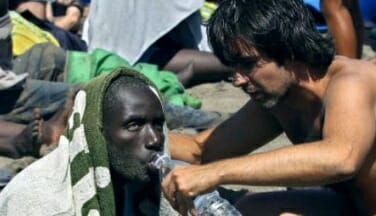
Jun 30, 2015 | Focolare Worldwide
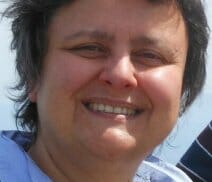 “When it comes to migrations, the numbers say more than the words. In one report published in October 2014, it was estimated that there were 7,124,000,000 people in the world. If the wealth were equally distributed, every person would have a median annual income of 14 thousand USA dollars. In reality, the income of 2,700,000,000 people is two USA dollars per day. Now, this economic inequality, which is a social inequality, has a very strong impact on migration. Entire populations pick up and move toward wealthier countries.” What is a migrant? In 2013, the United Nations claimed that there were 232 million married people in the world. And it defined a migrant as “a person who leaves his or her own country for reasons of employment and settles in another place for a period of more than twelve months.” That’s the only definition that you find, Flavia Cerino stressed. In fact, there are the refugees (the ones who are in need of political asylum in another country); the refugees fleeing from war situations, the so-called “illegals” (who move without having a document that makes them eligible to enter another country). And the reasons vary: war, poverty, studies, cultural interest, natural disasters . . .
“When it comes to migrations, the numbers say more than the words. In one report published in October 2014, it was estimated that there were 7,124,000,000 people in the world. If the wealth were equally distributed, every person would have a median annual income of 14 thousand USA dollars. In reality, the income of 2,700,000,000 people is two USA dollars per day. Now, this economic inequality, which is a social inequality, has a very strong impact on migration. Entire populations pick up and move toward wealthier countries.” What is a migrant? In 2013, the United Nations claimed that there were 232 million married people in the world. And it defined a migrant as “a person who leaves his or her own country for reasons of employment and settles in another place for a period of more than twelve months.” That’s the only definition that you find, Flavia Cerino stressed. In fact, there are the refugees (the ones who are in need of political asylum in another country); the refugees fleeing from war situations, the so-called “illegals” (who move without having a document that makes them eligible to enter another country). And the reasons vary: war, poverty, studies, cultural interest, natural disasters . . . 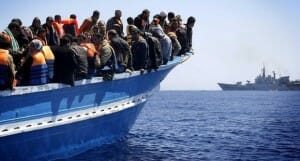 What were the most repeated words in the reports from the workshops at the New Humanity international training course where this topic was discussed? A few things stood out in the workshops. “The first was “fear,” fear of anything that is different from me,” continued Cerino. In reality, diversity is a great enrichment. We see that in nature where biological diversity is very enriching. If we lost it we’d be heading for extinction. We obviously have to consider the fear that is born of uncertainty; and this brings us to the topic of public order, national security. One thing is public order, and another thing is fear of diversity. Another topic that was frequently raised was the family. A migrant who travels alone, leaving the family behind, finds it difficult to describe the hardships he or she faces, in order not to worry their loved ones. But actually it would be important to tell one’s family what the real life situation is like, so that they will have a real understanding of what migration entails also in terms of reuniting the family, since families generally look forward to staying together. Another word that came up was interculturalism. That is the capacity to overcome the fear of diversity in order to create an environment of encounter and understanding. And it’s not only cultural understanding, but existential understanding, sharing problems. The migrant should be placed in a position of giving, but he and she believe that they have nothing to give when they are not recognized as persons who can act as active citizens, and therefore they are excluded from the start.
What were the most repeated words in the reports from the workshops at the New Humanity international training course where this topic was discussed? A few things stood out in the workshops. “The first was “fear,” fear of anything that is different from me,” continued Cerino. In reality, diversity is a great enrichment. We see that in nature where biological diversity is very enriching. If we lost it we’d be heading for extinction. We obviously have to consider the fear that is born of uncertainty; and this brings us to the topic of public order, national security. One thing is public order, and another thing is fear of diversity. Another topic that was frequently raised was the family. A migrant who travels alone, leaving the family behind, finds it difficult to describe the hardships he or she faces, in order not to worry their loved ones. But actually it would be important to tell one’s family what the real life situation is like, so that they will have a real understanding of what migration entails also in terms of reuniting the family, since families generally look forward to staying together. Another word that came up was interculturalism. That is the capacity to overcome the fear of diversity in order to create an environment of encounter and understanding. And it’s not only cultural understanding, but existential understanding, sharing problems. The migrant should be placed in a position of giving, but he and she believe that they have nothing to give when they are not recognized as persons who can act as active citizens, and therefore they are excluded from the start.  Flavia Cerino cited a question posed by Igino Giordani many years ago: “What do I do for him?, referring to an immigrant. “That’s the question we’re asking ourselves now. What do we do? There are countless experiences, great projects. My experience is the same as many of you. It turns on two elements: the first is that everything depends on a personal sensitivity. As a human being I feel called, and my and put into question right where I live, by a problem that I see in my next door neighbor. And I try to figure out what I should do, turning to the people and institutions who have the authority to act. Because it’s a matter of alleviating, making the presence of a migrant easier in my city. Actually, to the question of “What can I do?” we can answer by acting and doing what is within our power; so, getting together with others who share this desire, beginning with small gestures, we can weave together a network right where we are: simple gestures that generate a renewal of humanity right around us.” Source: “Reflections on migrations and interculturalism,” intervention during the New Humanity international training course (February 2015), coordinated by immigration expert Flavia Cerino. www.umanitanuova.org
Flavia Cerino cited a question posed by Igino Giordani many years ago: “What do I do for him?, referring to an immigrant. “That’s the question we’re asking ourselves now. What do we do? There are countless experiences, great projects. My experience is the same as many of you. It turns on two elements: the first is that everything depends on a personal sensitivity. As a human being I feel called, and my and put into question right where I live, by a problem that I see in my next door neighbor. And I try to figure out what I should do, turning to the people and institutions who have the authority to act. Because it’s a matter of alleviating, making the presence of a migrant easier in my city. Actually, to the question of “What can I do?” we can answer by acting and doing what is within our power; so, getting together with others who share this desire, beginning with small gestures, we can weave together a network right where we are: simple gestures that generate a renewal of humanity right around us.” Source: “Reflections on migrations and interculturalism,” intervention during the New Humanity international training course (February 2015), coordinated by immigration expert Flavia Cerino. www.umanitanuova.org
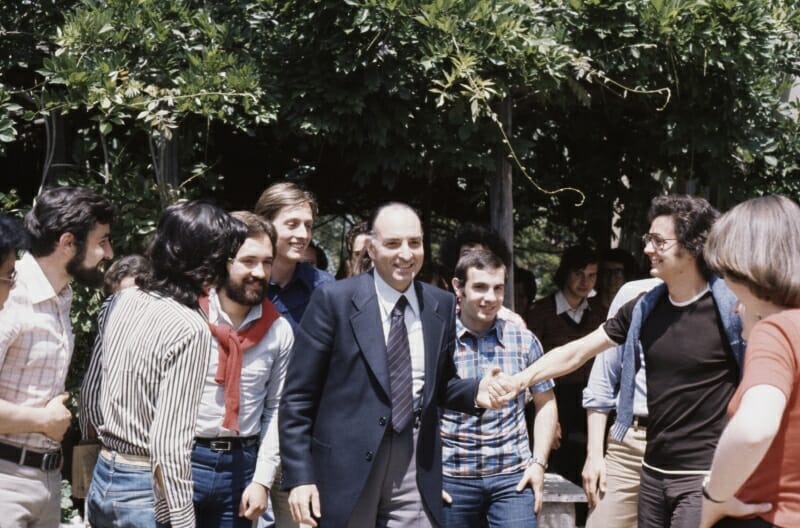
Jun 30, 2015 | Non categorizzato
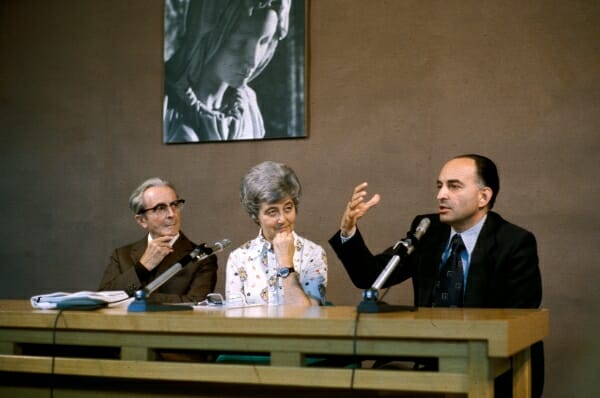
Photo CSC Media
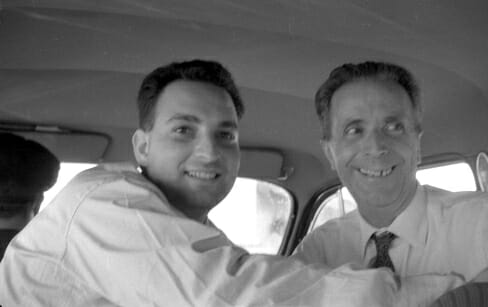
Photo CSC Media

Photo CSC Media
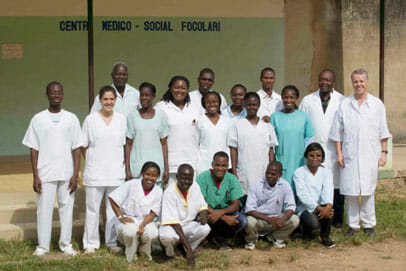
Jun 29, 2015 | Focolare Worldwide
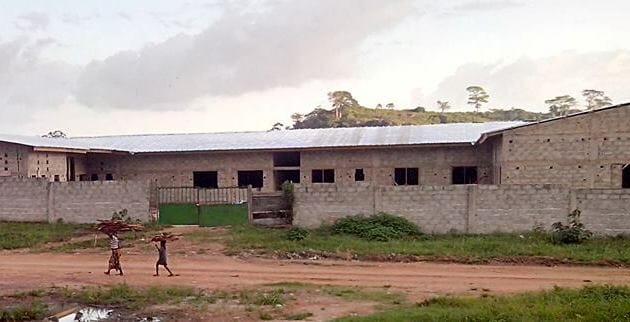 Estelle is the eldest of eight brothers, in a family from Ivory Coast who, after having worked as a secretary at a medical clinic in Abidjan, moved to Man in 2006 where she volunteers especially as a contact person with sponsors of a medical centre run by the Focolare Movement. When the project finished, she decided to expand her administrative skills. Meanwhile, her father died and she had to provide financial support for the family. She applied for and received a scholarship from Fraternity with Africa. Now, along with working, she is specializing through distance learning courses in “Administration of NGO organisations and non-profit associations” at university in Burkina Faso. After finishing her studies, with the support of a tutor and of AMU, she will travel to Burundi where she will complete one stage in administration and finance at CASOBU, an NGO that promotes human and community development through acitivites and projects based on the values of sharing and sustainable development. “It was a nice concrete experience for me, because it was the first time I travelled outside Ivory Coast and got to know other cultures and learn much from CASOBU; their approach to microcredit, for example. When I returned to my own country, I decided to propose that same microcredit model, beginning with the people I knew. We’ve already begun two groups that up until now seem to be functioning quite well. . .“ Everything she received, spurred Estelle to become involved in Fraternity with Africa: “When I finished my studies, I thought that since I couldn’t make a financial contribution, I could share my time and talents with the project.” So, on the one hand there was the work in adminstration, running and finances of the medical centre, and on the other hand keep up relationships, taking care of the adminstration and, from within the adminstration, she evaluates scholarship candidates and accompanies the students who receive them.
Estelle is the eldest of eight brothers, in a family from Ivory Coast who, after having worked as a secretary at a medical clinic in Abidjan, moved to Man in 2006 where she volunteers especially as a contact person with sponsors of a medical centre run by the Focolare Movement. When the project finished, she decided to expand her administrative skills. Meanwhile, her father died and she had to provide financial support for the family. She applied for and received a scholarship from Fraternity with Africa. Now, along with working, she is specializing through distance learning courses in “Administration of NGO organisations and non-profit associations” at university in Burkina Faso. After finishing her studies, with the support of a tutor and of AMU, she will travel to Burundi where she will complete one stage in administration and finance at CASOBU, an NGO that promotes human and community development through acitivites and projects based on the values of sharing and sustainable development. “It was a nice concrete experience for me, because it was the first time I travelled outside Ivory Coast and got to know other cultures and learn much from CASOBU; their approach to microcredit, for example. When I returned to my own country, I decided to propose that same microcredit model, beginning with the people I knew. We’ve already begun two groups that up until now seem to be functioning quite well. . .“ Everything she received, spurred Estelle to become involved in Fraternity with Africa: “When I finished my studies, I thought that since I couldn’t make a financial contribution, I could share my time and talents with the project.” So, on the one hand there was the work in adminstration, running and finances of the medical centre, and on the other hand keep up relationships, taking care of the adminstration and, from within the adminstration, she evaluates scholarship candidates and accompanies the students who receive them.  The medical centre in Man began in 2002, during the civil war when the hospital was closed. It was hosted in an apartment with three rooms. Then, in 2008, the current Social Medical Centre was opened with visiting rooms, one-day recovery rooms, pharmacy and laboratory. But now the number of patients has gown so much that a new centre is being constructed where diagnostic facilities will be added, and programmes for the reduction of infant malnutrition in the region of Man. There will also be training programmes for mothers, in the field of nutrition. The health situation of the people in Man is problematic. Medical bills are paid in advance and without the possiblity of riembursement. Given the poverty of the population, families are generally able to cover the cost of food and school fees. But if illness comes knocking, they only go the doctor when the illness is at its worst, and the patient is dying. The new medical centre will be able offer medical care to six thousand adult patients and three thousand children. See: AMU notizie 2/2015
The medical centre in Man began in 2002, during the civil war when the hospital was closed. It was hosted in an apartment with three rooms. Then, in 2008, the current Social Medical Centre was opened with visiting rooms, one-day recovery rooms, pharmacy and laboratory. But now the number of patients has gown so much that a new centre is being constructed where diagnostic facilities will be added, and programmes for the reduction of infant malnutrition in the region of Man. There will also be training programmes for mothers, in the field of nutrition. The health situation of the people in Man is problematic. Medical bills are paid in advance and without the possiblity of riembursement. Given the poverty of the population, families are generally able to cover the cost of food and school fees. But if illness comes knocking, they only go the doctor when the illness is at its worst, and the patient is dying. The new medical centre will be able offer medical care to six thousand adult patients and three thousand children. See: AMU notizie 2/2015
Jun 28, 2015 | Non categorizzato, Word of
These words conclude Jesus’s ‘Farewell Discourse’ to his disciples at the last supper, on the eve of his being handed over to those who were to put him to death. They had had an intense conversation in which Jesus had revealed the inner truth about his relationship with the Father and the mission the Father had entrusted to him. Jesus is about to leave the earth and return to the Father, while his disciples will remain in the world to carry on his work. They too, like him, will be hated, persecuted, even put to death (see Jn 15:18, 20; 16:2). Theirs will be a difficult mission just as his had been. Jesus is well aware of the difficulties and the trials his friends will have to face. He had just told them: ‘In the world you will face persecution’ (Jn 16:33). Jesus is speaking to the apostles gathered around him for the last supper, but he is thinking of all the generations of disciples who would follow him throughout the centuries, including us. It’s so true! Even while joy is spread all along the path we follow, there is no lack of ‘persecution’ and sufferings. We experience uncertainty about the future, job insecurity, poverty and sickness, suffering as a result of natural disasters and wars, violence at home and among nations. There are in addition the persecutions that come as a result of being Christians: the daily struggle to be faithful to the Gospel, the feeling of impotence before a society that seems indifferent to the message of God, mockery, scorn and sometimes open persecution by those who do not understand or oppose the Church. Jesus knows about ‘persecutions’ having experienced them at first hand. ‘Take courage; I have conquered the world!’ This statement, which is so decisive and confident, looks like a contradiction. How can Jesus say that he has conquered the world when a few minutes later he is going to be imprisoned, whipped, condemned, killed in the cruellest and most shameful manner? More than having conquered, it looks as if he was betrayed, denied, reduced to nothing, and so defeated – utterly. What is the nature of his victory? It came about, certainly, in the resurrection. Death cannot hold him. His victory is so powerful that he makes us share in it too. He makes himself present among us and he takes us with him to full life, the new creation. But even before that, his victory was the very act of his greatest love in giving his life for us. He, in defeat, triumphed fully. Penetrating every corner of death, he freed us from all that oppresses us, and he transformed all that is negative in us, our every darkness and pain, into a meeting with him, with God, Love, fullness. Paul, whenever he thought of Jesus’s victory, seemed to go mad with joy. If Jesus, he would affirm, had faced every setback, including even the supreme challenge of his death, and he had won, then we too, with him and in him, can overcome every difficulty, and indeed, thanks to his love, we are ‘more than conquerors’: ‘For I am convinced that neither death, nor life … nor anything else in all creation, will be able to separate us from the love of God in Christ Jesus our Lord’ (Rom 8:38-39; see 1 Cor 15:57). We are invited by Jesus, therefore, to fear nothing anymore: ‘Take courage; I have conquered the world!’ These words of Jesus, which we will keep in mind for the whole of this month, can fill us with trust and hope. However tough and hard may be our circumstances, we have the certainty that Jesus has already made them his own and overcome them. Even if we do not have his inner strength, we have him himself who lives and struggles in us. We can say to him when we feel crushed by difficulties, trials or temptations, ‘If you have overcome the world, you will know how to overcome this “persecution” I am going through. To me, to my family, to my colleagues at work what is happening seems like an impossible hurdle. It feels to us as if we can’t make it. But with you among us, we will find the courage and the strength to face it, until we come to be “more than conquerors”.’ It is not a matter of having a triumphalist vision of Christian life, as if it were easy and everything had been sorted out. Jesus is victorious precisely in the moment that he lives his drama of suffering, injustice, forsakenness and death. Perhaps we too, at times, like Jesus and the martyrs, will have to wait for Heaven’s response before we see a full victory over evil. Often we are scared of speaking about Paradise, almost as if the thought of it were a drug stopping us facing the difficulties with courage, an anaesthetic to lessen the pain, an excuse not to have to fight against injustice. The hope of Heaven and faith in the resurrection are instead a powerful spur to look squarely at every problem, to support others in their trials, to believe that the final word belongs to love that conquers hate, of life that defeats death. So every time we come across a difficulty of any sort – be it personal, or of the people around us, or of those we hear about in different parts of the world – let’s renew our trust in Jesus, present in us and among us, who has overcome the world, who makes us share in his own victory, who opens up Paradise where he has gone to prepare a place for us. In this way we will find the courage to face every trial. We can overcome everything in he who gives us the strength. Fabio Ciard






 “When it comes to migrations, the numbers say more than the words. In one report published in October 2014, it was estimated that there were 7,124,000,000 people in the world. If the wealth were equally distributed, every person would have a median annual income of 14 thousand USA dollars. In reality, the income of 2,700,000,000 people is two USA dollars per day. Now, this economic inequality, which is a social inequality, has a very strong impact on migration. Entire populations pick up and move toward wealthier countries.” What is a migrant? In 2013, the United Nations claimed that there were 232 million married people in the world. And it defined a migrant as “a person who leaves his or her own country for reasons of employment and settles in another place for a period of more than twelve months.” That’s the only definition that you find, Flavia Cerino stressed. In fact, there are the refugees (the ones who are in need of political asylum in another country); the refugees fleeing from war situations, the so-called “illegals” (who move without having a document that makes them eligible to enter another country). And the reasons vary: war, poverty, studies, cultural interest, natural disasters . . .
“When it comes to migrations, the numbers say more than the words. In one report published in October 2014, it was estimated that there were 7,124,000,000 people in the world. If the wealth were equally distributed, every person would have a median annual income of 14 thousand USA dollars. In reality, the income of 2,700,000,000 people is two USA dollars per day. Now, this economic inequality, which is a social inequality, has a very strong impact on migration. Entire populations pick up and move toward wealthier countries.” What is a migrant? In 2013, the United Nations claimed that there were 232 million married people in the world. And it defined a migrant as “a person who leaves his or her own country for reasons of employment and settles in another place for a period of more than twelve months.” That’s the only definition that you find, Flavia Cerino stressed. In fact, there are the refugees (the ones who are in need of political asylum in another country); the refugees fleeing from war situations, the so-called “illegals” (who move without having a document that makes them eligible to enter another country). And the reasons vary: war, poverty, studies, cultural interest, natural disasters . . . 




 Estelle is the eldest of eight brothers, in a family from Ivory Coast who, after having worked as a secretary at a medical clinic in Abidjan, moved to Man in 2006 where she volunteers especially as a contact person with sponsors of a medical centre run by the
Estelle is the eldest of eight brothers, in a family from Ivory Coast who, after having worked as a secretary at a medical clinic in Abidjan, moved to Man in 2006 where she volunteers especially as a contact person with sponsors of a medical centre run by the